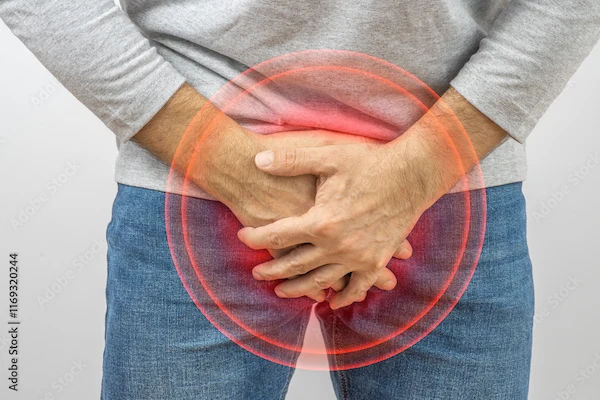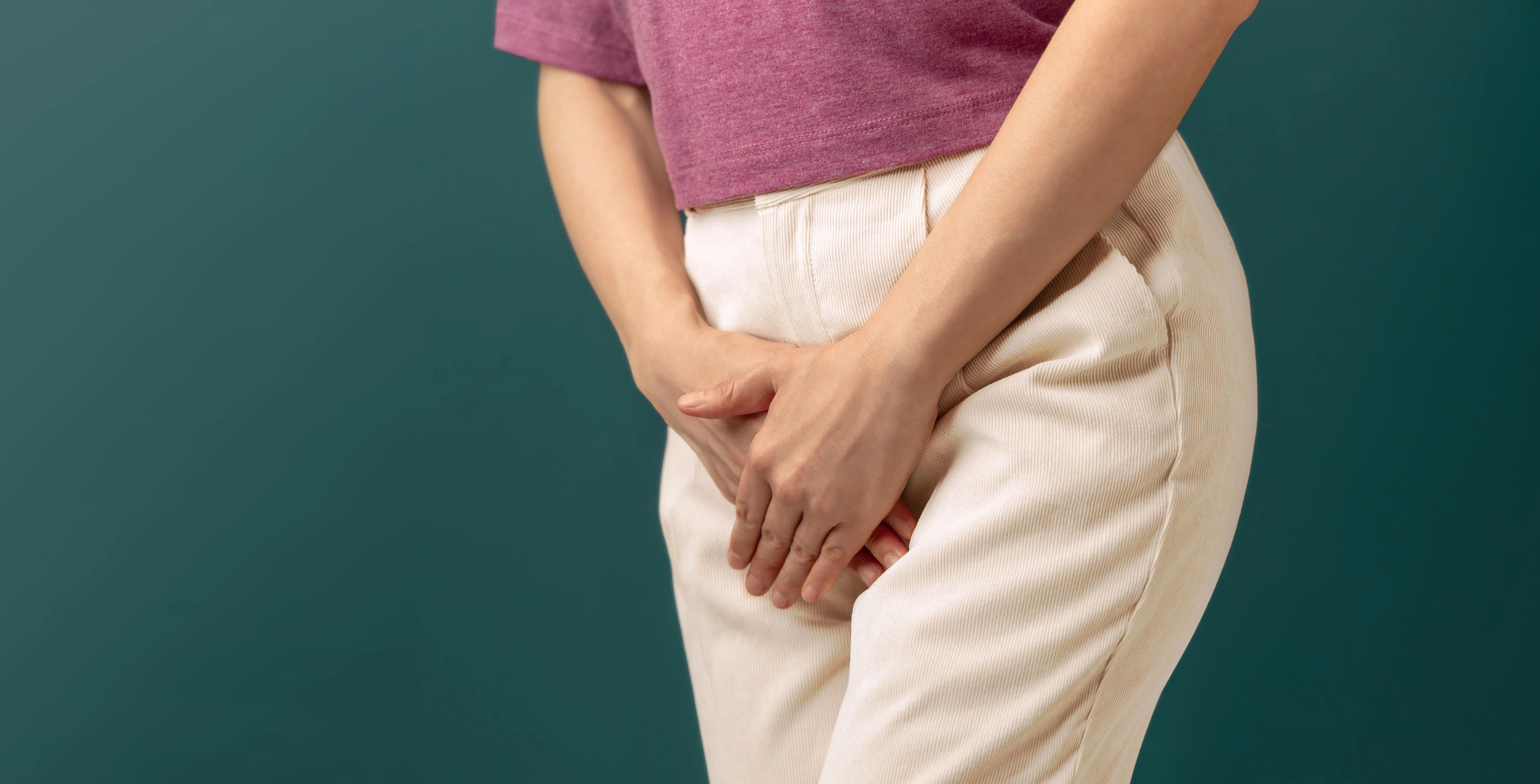Leaking Urine? A Compassionate Guide to Understanding and Managing Incontinence
Discover causes, types, and effective treatments for urinary incontinence. Learn how to manage leakage, regain control, and live confidently.

Written by Dr. Dhankecha Mayank Dineshbhai
Reviewed by Dr. Md Yusuf Shareef MBBS
Last updated on 13th Jan, 2026

Introduction
That sudden leak when you laugh, cough, or sprint to the bathroom—urine leakage, or incontinence, can feel isolating and embarrassing. But here’s the crucial truth you need to hear: you are not alone. Millions of people worldwide experience this condition, and it is not an inevitable sign of ageing or a personal failing. Incontinence is a medical issue, and like any other health concern, it can be understood, managed, and often cured. This guide is designed to walk you through everything you need to know with empathy and clarity. We will demystify the different types of urine incontinence, explore their underlying causes, and outline a wide range of treatment options, from simple lifestyle changes to medical interventions. Our goal is to empower you with knowledge, reduce the stigma, and help you take the first step towards regaining your confidence and control. If you're tired of planning your life around bathroom stops, you've come to the right place.
What Exactly is Urine Leakage (Incontinence)?
Urinary incontinence is the involuntary leakage of urine. It means that urine escapes from the bladder without your control. The severity ranges from occasionally leaking a few drops when you cough or exercise to having a sudden, intense urge to urinate that is so strong you can't make it to the toilet in time. It's important to view this not as a single disease but as a symptom of an underlying issue. This issue could be weakened muscles, nerve damage, an infection, or the side effect of a medication.
It's More Common Than You Think – Breaking the Stigma
One of the biggest barriers to seeking help for leakage of urine is the shame associated with it. However, the numbers tell a different story. It's estimated that hundreds of millions of people globally live with some form of incontinence. It affects women more frequently than men, primarily due to pregnancy, childbirth, and menopause, but it is a significant issue for men as well, especially those who have had prostate surgery. Acknowledging that this is a widespread medical condition is the first step in breaking the cycle of silence and finding effective solutions.
The 5 Main Types of Urinary Incontinence
Understanding the specific type of incontinence you're experiencing is key to finding the right treatment. The symptoms are your body's way of pointing towards the root cause.
Stress Incontinence: When Pressure is the Problem
This is one of the most common types, especially among women. Stress incontinence occurs when physical pressure on the bladder causes leakage. The "stress" here is physical, not emotional. It happens when the pelvic floor muscles, which support the bladder and urethra, are weakened.
- Examples: Leaking urine when you cough, sneeze, laugh, exercise, lift heavy objects, or even stand up.
- Unique Insight: Many young, otherwise healthy women experience this after childbirth, but it's not something you have to "just live with." Targeted physical therapy can make a profound difference.
Consult a Specialist for the best advice
Urge Incontinence: The Overactive Bladder
This type is characterised by a sudden, intense urge to urinate, followed by an involuntary loss of urine. You may need to urinate frequently, including throughout the night. This is often linked to an overactive bladder (OAB), where the bladder muscles contract involuntarily.
- Examples: Leaking on the way to the bathroom, feeling a sudden urge when you hear running water or put the key in your front door.
- Unique Insight: Behavioural therapies like "bladder training" can be incredibly effective for retraining your brain and bladder to communicate better, reducing these sudden urges.
Overflow Incontinence: The Constant Dribble
This happens when the bladder doesn't empty completely, leading to frequent or constant dribbling of urine. It feels like you're never quite finished. It's more common in men with an enlarged prostate that blocks the urethra, but it can also be caused by nerve damage from diabetes or other conditions.
- Example: Feeling the need to urinate but only producing a weak stream, followed by continued dribbling afterwards.
Mixed Incontinence: A Combination of Issues
This is exactly what it sounds like—a mix of symptoms, most commonly stress and urge incontinence together. For example, you might leak when you sneeze (stress) and also experience strong, uncontrollable urges (urge). This is very common, and treatment will address both components.
Functional Incontinence: When the Mind is Willing, but the Body Isn't
In this case, the urinary system works perfectly, but a physical or mental impairment prevents you from reaching the toilet in time. This could be due to severe arthritis that makes it difficult to unbutton trousers, a cognitive condition like dementia, or a mobility issue.
- Example: A person with Parkinson's disease knows they need to urinate but cannot move to the bathroom quickly enough.
Uncovering the Root Causes: Why Does Leakage Happen?
The causes of urine leakage are as varied as the types themselves. They can be temporary or persistent.
Causes in Women
- Pregnancy & Childbirth: The weight of the fetus and the process of vaginal delivery can stretch and weaken pelvic floor muscles and damage nerves.
- Menopause: The decline in oestrogen after menopause can cause the lining of the urethra to atrophy and the tissues to weaken, reducing bladder support.
- Hysterectomy: This surgery can sometimes damage the supporting pelvic floor muscles.
Causes in Men - Prostate Issues: An enlarged prostate (benign prostatic hyperplasia) can cause obstruction leading to overflow incontinence. Prostate cancer surgery can damage the sphincter muscles or nerves, leading to stress or urge incontinence.
Causes Affecting All Genders
- Neurological Disorders: Conditions like multiple sclerosis, Parkinson's disease, a stroke, or a spinal cord injury can interfere with nerve signals involved in bladder control.
- Lifestyle Factors: Obesity increases abdominal pressure on the bladder. Chronic constipation can also put pressure on the bladder. Smoking can cause a chronic cough, contributing to stress incontinence.
- Temporary Causes: Urinary Tract Infections (UTIs) can irritate the bladder, causing strong urges. Certain medications (like diuretics for blood pressure) can increase urine production.
Diagnosis: What to Expect When You Talk to a Doctor
If you're experiencing persistent leakage, it's important to consult a healthcare professional. If symptoms persist beyond two weeks, consult a doctor online with Apollo24|7 for further evaluation. They will likely start with a detailed history and a physical exam.
The Importance of a Bladder Diary
Before your appointment, keeping a "bladder diary" for a few days can be incredibly helpful. Note:
- How much fluid you drink.
- How often you urinate.
- The amount of urine you pass (you can use a measuring cup).
- How many episodes of leakage you have and what you were doing when they occurred (e.g., coughing, rushing to the bathroom).
- The strength of your urges.
Common Tests and Procedures
- Urinalysis: To check for infection, blood, or other abnormalities.
- Postvoid Residual Measurement: An ultrasound or catheter is used to see how much urine is left in your bladder after you urinate.
- Urodynamic Testing: These tests measure pressure and volume in the bladder to see how well it's storing and releasing urine.
Taking Back Control: Effective Treatment Options
The good news is that there is a wide spectrum of treatments, starting with the least invasive options.
Non-Invasive First Steps: Lifestyle and Behavioural Therapies
These are almost always the first line of defence and can yield significant improvements.
- Pelvic Floor Exercises (Kegels): Your Foundation for Control
- Kegels strengthen the pelvic floor muscles that support the bladder. The key is doing them correctly.
- How to: Tighten the muscles you would use to stop the flow of urine. Hold for 3-5 seconds, then relax for the same amount of time. Aim for 3 sets of 10-15 repetitions daily. Consistency is crucial.
Bladder Training: Retraining Your Urge
This involves gradually increasing the time between bathroom visits. If you normally go every hour, try to extend it to 1 hour and 15 minutes. Over several weeks, you can train your bladder to hold urine for longer, more comfortable intervals.
Medications for Urge Incontinence
Drugs called anticholinergics (e.g., oxybutynin, tolterodine) or beta-3 agonists (mirabegron) can help relax the bladder muscle and increase storage capacity.
Medical Devices and Procedures
For women, a pessary—a removable ring inserted into the vagina—can support the bladder neck and prevent leakage. Bulking agents can be injected around the urethra to help it stay closed.
Surgical Interventions for Lasting Relief
For severe cases of stress incontinence, procedures like sling surgery (placing a supportive "hammock" under the urethra) can be highly effective. For an enlarged prostate in men, various surgical techniques can relieve the obstruction.
Conclusion: Living Confidently with Incontinence
Living with urine leakage can feel like a loss of freedom, but it doesn't have to be a life sentence. As we've explored, this condition is manageable. From simple, daily exercises like Kegels to advanced medical treatments, a path to improvement exists. The most important step is the first one: acknowledging the issue and seeking information or help. Remember, managing incontinence is not just about staying dry; it's about reclaiming your confidence, your social life, and your peace of mind. Be patient with yourself, celebrate small victories, and know that with the right approach, you can take back control. Don't hesitate to reach out to a healthcare provider to discuss a personalised plan for you.
Consult a Specialist for the best advice
Consult a Specialist for the best advice

Dr Suseela
General Physician
5 Years • MBBS
Bengaluru
Apollo Medical Center, Marathahalli, Bengaluru

Dr D M Karthik
General Practitioner
4 Years • MBBS, Fellowship in Diabetes Mellitus, Advance certificate in Diabetes Mellitus, Derma Nutrition Certification
Visakhapatnam
Apollo 24|7 Clinic - Andhra Pradesh, Visakhapatnam

Dr. M L Ezhilarasan
General Practitioner
6 Years • MBBS
Visakhapatnam
Apollo 24|7 Clinic - Andhra Pradesh, Visakhapatnam

Dr Bhargav Vuppumalla
General Physician/ Internal Medicine Specialist
5 Years • MBBS MD GENERAL MEDICINE
Bengaluru
Apollo Medical Center, Marathahalli, Bengaluru

Dr. Vivek D
General Physician
4 Years • MBBS
Bengaluru
PRESTIGE SHANTHINIKETAN - SOCIETY CLINIC, Bengaluru
Consult a Specialist for the best advice

Dr Suseela
General Physician
5 Years • MBBS
Bengaluru
Apollo Medical Center, Marathahalli, Bengaluru

Dr D M Karthik
General Practitioner
4 Years • MBBS, Fellowship in Diabetes Mellitus, Advance certificate in Diabetes Mellitus, Derma Nutrition Certification
Visakhapatnam
Apollo 24|7 Clinic - Andhra Pradesh, Visakhapatnam

Dr. M L Ezhilarasan
General Practitioner
6 Years • MBBS
Visakhapatnam
Apollo 24|7 Clinic - Andhra Pradesh, Visakhapatnam

Dr Bhargav Vuppumalla
General Physician/ Internal Medicine Specialist
5 Years • MBBS MD GENERAL MEDICINE
Bengaluru
Apollo Medical Center, Marathahalli, Bengaluru

Dr. Vivek D
General Physician
4 Years • MBBS
Bengaluru
PRESTIGE SHANTHINIKETAN - SOCIETY CLINIC, Bengaluru
More articles from Urinary Incontinence
Frequently Asked Questions
Can drinking less water help stop urine leakage?
No, this is a common misconception. Dehydration concentrates your urine, which can actually irritate your bladder and worsen urge incontinence. It's important to drink adequate fluids throughout the day, but you may want to limit irritants like caffeine and alcohol.
Are there any specific foods that make bladder leakage worse?
Yes, certain foods and drinks are known bladder irritants for some people. These include caffeine (coffee, tea, soda), alcohol, carbonated beverages, artificial sweeteners, spicy foods, and acidic foods like tomatoes and citrus fruits. Try eliminating one at a time to see if it makes a difference.
How long does it take for Kegel exercises to work for stress incontinence?
You may need to perform Kegel exercises consistently for 4 to 6 weeks before you start to notice a significant improvement in your symptoms. It's essential to do them correctly and make them a part of your daily routine.
Is urinary incontinence a normal part of ageing?
While it is more common in older adults due to muscle weakening, it is not an inevitable consequence of ageing. Many older adults do not experience incontinence, and it should always be evaluated by a doctor, as it can indicate an underlying treatable condition.
What are the best products for managing urine leakage?
There are many discreet and effective products available, including absorbent pads and protective underwear specifically designed for incontinence (which are more effective than menstrual pads). For men, a drip collector pouch (penile sheath) can be a good solution for light leakage.




